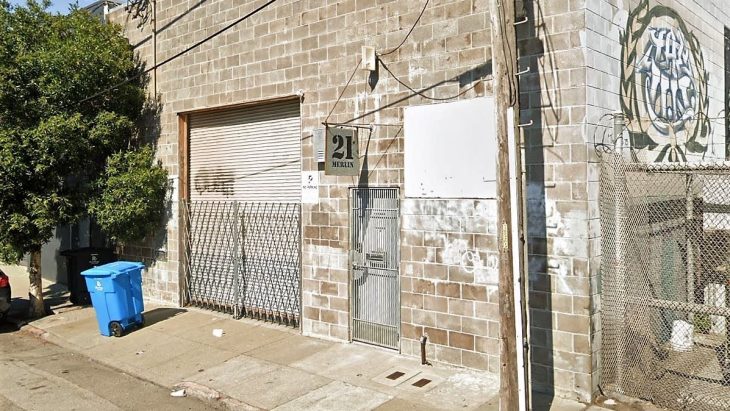Harm Reduction Therapy Center

About Harm Reduction Therapy Center
The Harm Reduction Therapy Center (HRTC) Merlin in San Francisco, California offers harm reduction services for people with drug or alcohol addiction. Their mission statement is, “Come as you are, take what you need, leave when you’re ready.” The goal is to minimize the risks to your health from your addiction until you’re ready for recovery.
Referrals for Detox
If you need detoxification services the center can refer you to a local facility. They don’t directly offer detox here but as a trusted resource for people with addiction, they can direct you where to go for detox help.
Office based therapy is offered to all individuals regardless of socioeconomic status. They welcome diverse clientele including BIPOC, LGBTQIA+, women, and clients with disabilities.
The program offers therapy for substance use to those who are concerned but not sure they are ready to change, for those not following recommendations, or for anyone who is resistant to change. You don’t have to commit to immediate abstinence to get therapy here.
Mobile Substance Use Therapy
The center provides mobile therapy through “pop ups” in different neighborhoods. This clinic without walls provides water, food, hygiene and first aid supplies, harm reduction equipment and advice, and Narcan.
An attendee told staff “The way you care about me makes me want to start caring about myself.” Other providers have started showing up at these clinic events such as San Francisco’s Street Medicine team, Slowpoke Acupuncture, Care through Touch, and others.
Community Based Treatment and Therapy
The center itself provides community based services. This is a cheery place with comfortable couches and chairs, art and murals, and soothing acoustics and lights. The center is a hangout place where community members can come and receive mental health and substance use services.
Treatment and Services for Youth
The center works with the Homeless Youth Alliance to offer mental health and substance use treatment in Haight Ashbury where a high number of homeless youth live. Youth can drop into the center for therapy and clean syringes. The center sometimes stations a pop up mobile van that offers youth food, music, and conversation.
The center also offers therapy services for the Navigation Center, a shelter for transitional youth ages 18 to 24 years old. Therapy targets the main mental health issues in that area including PTSD, depression, anxiety, substance use, and suicidal thoughts.
| Levels of Care | Detox Service Setting | Programs | Payment Options | |||
|---|---|---|---|---|---|---|
|
In outpatient therapy, you’ll attend therapy sessions several times each week while living at home. This is ideal if you have a strong support system and a lower risk of relapse. Outpatient treatment offers flexibility to maintain work, school or family obligations. |
Dual diagnosis programs address substance use disorders and co-occurring mental health conditions simultaneously. This integrated approach to care improves the likelihood of long term recovery and stability by addressing the root causes of addiction. |
|||||
|
Outpatient detox gives you access to medically supervised withdrawal services while still allowing you to live at home. You’ll attend a clinic for treatment and monitoring. This flexible option is suitable for those with mild to moderate withdrawal symptoms who have strong support systems. |
||||||
|
Adult programs address the substance use and life challenges specific to adults. Therapists can deliver sessions in individual, group and family settings. Services often include job support and life skills training in a structured environment. |
Alcohol detox programs offer medical support to help individuals withdraw safely from alcohol. Your care team may use medications to ease your symptoms and provide medical monitoring to address complications. |
Drug detox programs support individuals who are withdrawing from addictive substances like cocaine and heroin. Medical support helps you manage symptoms in a controlled and safe environment so you can achieve initial sobriety. |
Men's programs address substance use while also considering the social pressures, family roles and mental health concerns that are specific to men. You’ll learn healthy coping mechanisms as you build emotional resilience and develop communication skills. |
Opioid detox uses medications to ease severe withdrawal symptoms. It also includes medical supervision to help you manage potential complications. These services allow you to stabilize and begin a recovery plan. |
Women's programs offer a safe and supportive space to focus on gender specific issues such as trauma, family roles and mental health conditions. Therapists tailor the sessions to address women's needs and foster empowerment in a healing and nurturing environment. |
Young adult programs are designed for individuals who are transitioning into adulthood. Topics of discussion typically include identity, independence and peer relationships. Providers may also offer life skills training and career support. |
|
Private Insurance
|
Self Pay
|
Levels of Care
In outpatient therapy, you’ll attend therapy sessions several times each week while living at home. This is ideal if you have a strong support system and a lower risk of relapse. Outpatient treatment offers flexibility to maintain work, school or family obligations.
Dual diagnosis programs address substance use disorders and co-occurring mental health conditions simultaneously. This integrated approach to care improves the likelihood of long term recovery and stability by addressing the root causes of addiction.
Detox Service Setting
Outpatient detox gives you access to medically supervised withdrawal services while still allowing you to live at home. You’ll attend a clinic for treatment and monitoring. This flexible option is suitable for those with mild to moderate withdrawal symptoms who have strong support systems.
Programs
Adult programs address the substance use and life challenges specific to adults. Therapists can deliver sessions in individual, group and family settings. Services often include job support and life skills training in a structured environment.
Alcohol detox programs offer medical support to help individuals withdraw safely from alcohol. Your care team may use medications to ease your symptoms and provide medical monitoring to address complications.
Drug detox programs support individuals who are withdrawing from addictive substances like cocaine and heroin. Medical support helps you manage symptoms in a controlled and safe environment so you can achieve initial sobriety.
Men's programs address substance use while also considering the social pressures, family roles and mental health concerns that are specific to men. You’ll learn healthy coping mechanisms as you build emotional resilience and develop communication skills.
Opioid detox uses medications to ease severe withdrawal symptoms. It also includes medical supervision to help you manage potential complications. These services allow you to stabilize and begin a recovery plan.
Women's programs offer a safe and supportive space to focus on gender specific issues such as trauma, family roles and mental health conditions. Therapists tailor the sessions to address women's needs and foster empowerment in a healing and nurturing environment.
Young adult programs are designed for individuals who are transitioning into adulthood. Topics of discussion typically include identity, independence and peer relationships. Providers may also offer life skills training and career support.
Contact

Kimberly Hawkins holds a Masters degree in Computing and Information Sciences from East Tennessee State University. She is also a freelance writer specializing in content related to mental health, addiction recovery, and overall wellness. On Valentine’s Day of 2024, Kimberly’s only sibling passed away of an accidental drug overdose. Since then, Kimberly has become a passionate advocate for addiction recovery awareness and support.

Nikki Wisher is an Atlanta-based content writer with over a decade of experience specializing in health and wellness. While she spends most of her days writing about various aspects of health, from addiction recovery to fitness to skin care, she also writes content in many other areas like photography, beauty, and marketing. Her passion project is her inclusive running blog, forallrunners.com.




